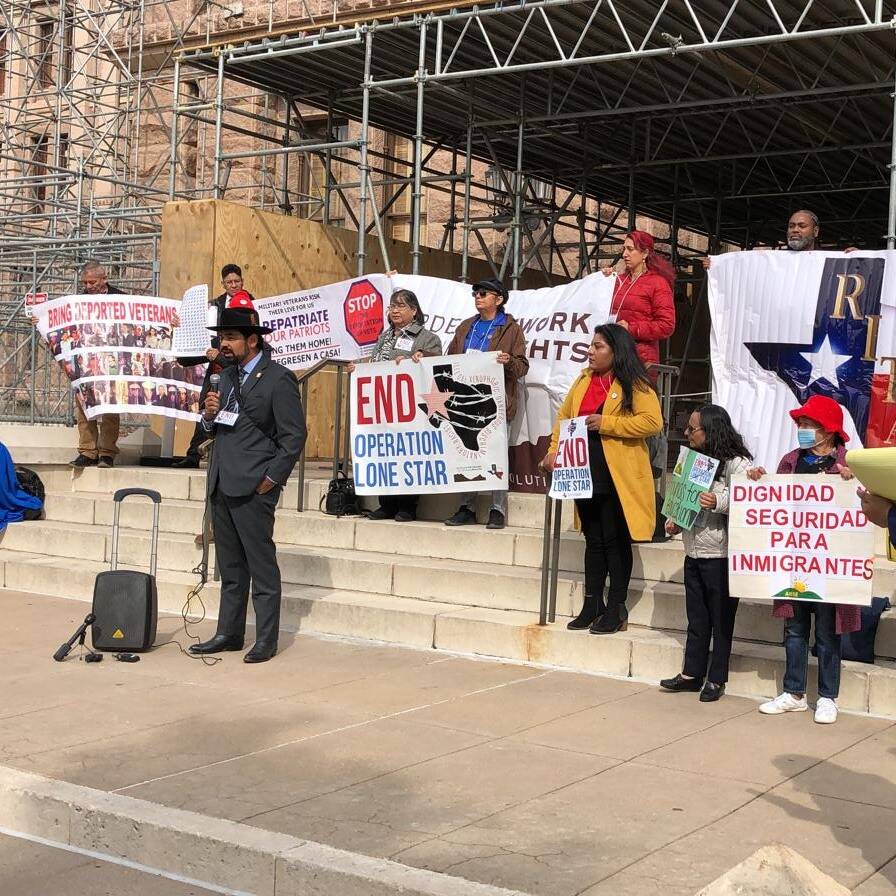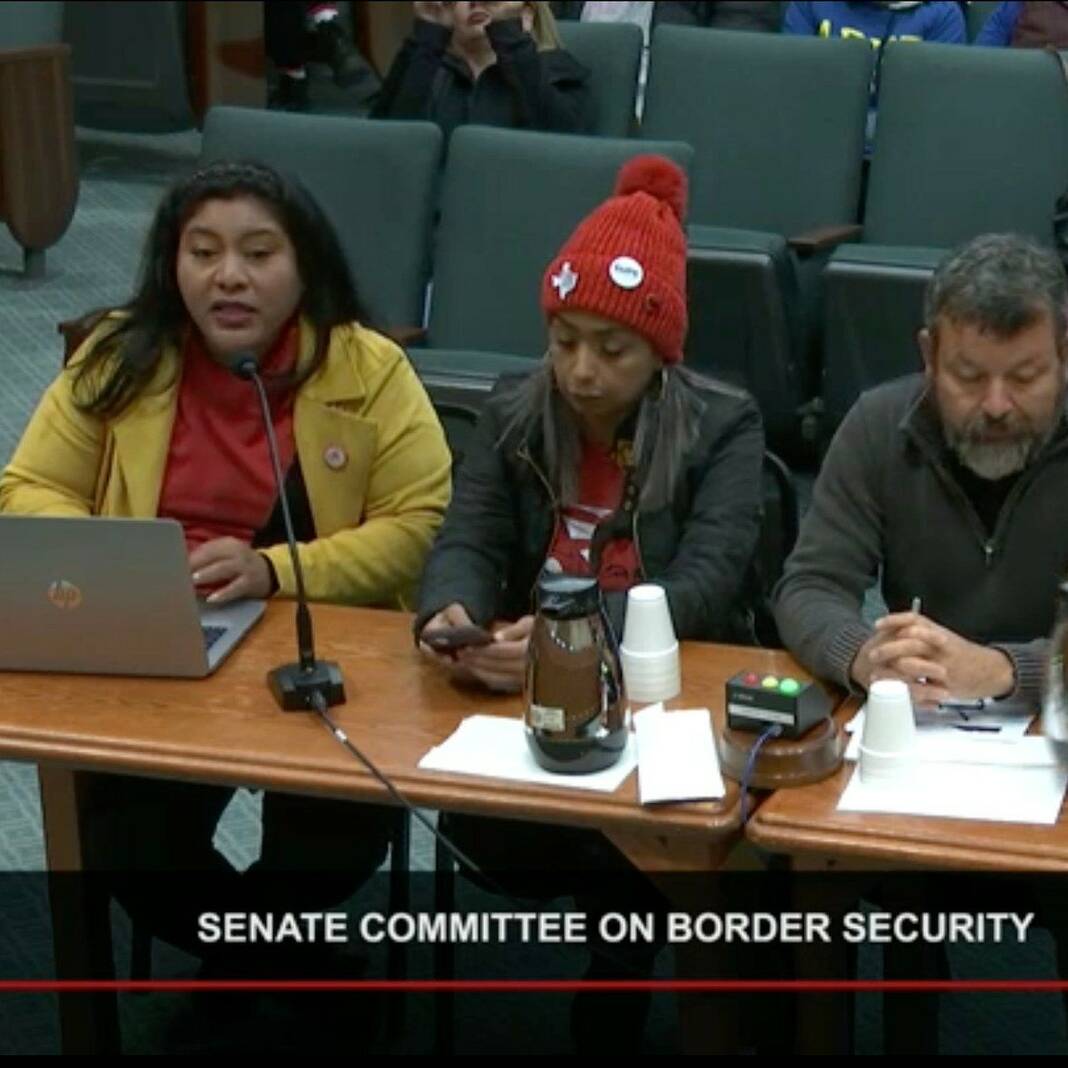
Racial profiling, migrant deaths and traffic stops were among some of the main concerns Rio Grande Valley residents shared with state senators during a hearing held Tuesday to address the impact of Gov. Greg Abbott’s Operation Lone Star.
State Sen. Juan “Chuy” Hinojosa, D-McAllen, was one of the senators who gathered to hear from state agencies on the operation’s impact to the border, rural, and urban communities throughout Texas, as well as to review border security appropriations.
Among sheriffs, directors, and policy advisers, members from La Union del Pueblo Entero and ARISE, two nonprofits working to improve Valley communities, offered their testimony on the policy, which took effect last year when Abbott chose the Valley to announce its launch. The program continues to be in effect to date.
“Border communities are thriving and vibrant. There’s no better place to raise a family than the Rio Grande Valley, which was the case until Operation Lone Star started in March of 2021,”
Tanya Chavez Camacho, a LUPE member who’s lived in the Valley for 22 years, said Tuesday.
“I actually lived as an undocumented citizen for 20 years in the Rio Grande Valley and I know first-hand what it is to live in fear. Dining at restaurants while CBP and DPS officers (are) sitting right next to you gives you a grouching pain in the stomach,” Chavez Camacho said. “Operation Lone Star is the latest attempt from Governor Abbott to criminalize immigrants and people of color, and border residents like myself in the Rio Grande Valley.”
Under Operation Lone Star, state agencies touted multiple successes, including the criminal arrests of 21,941 immigrants, 70 miles of temporary fencing constructed along the border, and contracts for 18.8 miles of permanent wall structures, according to Sarah Hicks, Abbott’s director of budget and policy.
The governor also began sending migrants away from border communities to so-called sanctuary cities in northern states, but only those with democratic leadership. So far, over 300 buses carrying about 13,000 migrants were sent across the U.S., triggering financial stress to cities like New York City and Chicago.

Bob Hall, a republican senator, questioned the use and cost of buses used to send migrants away from Texas.
“You said $26-million and about 13,000. That’s about $2,000 per person by bus,” Hall said, directing his comments to W. Nim Kidd, the director of the Texas Division of Emergency Management.
“We can get a first class airplane ticket for a lot less than that. Why aren’t we just flying them up there?,” Hall asked Kidd.
Kidd said the bus program was designed to keep migrants together and move them to the selected destinations. “And I don’t think we’re in the process of buying individual plane tickets to move people around, senator,” Kidd added.
“We’re going to spend four times as much to do this,” Hall reiterated.
Valley activists questioned the use of money, too.
“We are here to ask you, don’t invest more money in this operation. Instead, we can respond in different ways by looking at the needs we have,” Ramona Casas, director of ARISE, told senators. “We don’t have public lights at the corner of the streets in close to 1,000 colonias or rural communities. And we don’t have public transportation either. That’s the area where we’d like you, as senators and a committee, to invest the money.”
Hinojosa listened to their concerns, thanked them for their testimony and discussed improvement projects in colonias. “We have invested quite a bit,” Hinojosa replied.
Hinojosa and Chavez Camacho spoke about alleged racial profiling in the Valley, where, Chavez Camacho conceded, it is mostly Hispanic. But she explained that many of those stopped by DPS are people who are disproportionately affected by poverty and drive vehicles with broken tail lights or other visible deterioration.
Hinojosa sympathized with residents and shared how he, a U.S. citizen, was deported with his mother, who was not in the country legally, when he was a child. But he also said the public safety concerns presented by unlawful immigration were also valid.
“In terms of Texas, we cannot ignore some of the crime being committed,” Hinojosa said, ”not by the immigrants who come actually to look for work and for a better way of life, but in the mix, there are people who are not here to be good citizens.”



